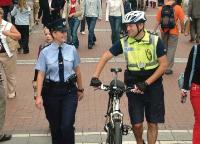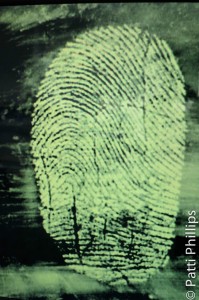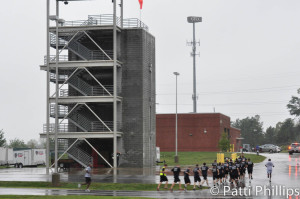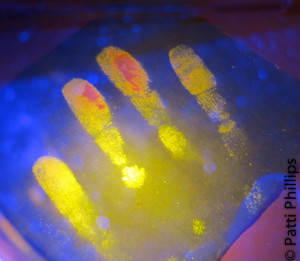KN, p. 193 “An Garda Siochana, the Irish National Police”
An Garda Síochána
Ever wonder what it would be like to be an Irish cop? Not a cop of Irish heritage living in the USA, but a cop who lives and works in Ireland. Is the job more glamorous or grittier than the U.S. version? Take a look at some of the aspects of the job as well as the requirements for becoming a candidate for the two-year training program for the Garda.
An Garda Síochána is the national police service of Ireland. Back in the 1920s, Ireland had just become a free state and needed a strong national police force. Almost 100 years later, it has over 14,000 members, has offices in every county, and is now considered to be a community based law enforcement agency.
A Commissioner heads the agency, assisted by Deputy and Assistant Commissioners. Ireland is divided into six geographical regions for the Garda’s purposes, with 28 divisions, each headed by a Chief Superintendent. Superintendents oversee the 96 districts scattered throughout the divisions. Inspectors and Sergeants conduct investigations, with the help of the Garda trainees and civilian employees.
A statement on the Garda website reveals current philosophy: “Modern policing entails much more than crime fighting. Reducing the fear of crime and working in partnership with communities are the keys to making a positive difference and improving quality of life for all citizens.”
‘Reducing the fear of crime’ is a terrific goal and one that many hope is reflected in the Garda’s daily community interactions. Very little is worse for a civilian than being afraid to leave one’s house because of terrorism, or of local hooligans taking over the streets. We, as citizens, want to feel safe in our own homes and neighborhoods, wherever we live in the world. Bravo to the Garda and the community for making that a stated objective as they work to reduce crime, both locally and across Ireland.
What else does the Garda do?
In 2016, over 200 million Euros was earmarked to provide upgrades to the Garda training and equipment. That investment was made so that they could “attract, develop and retain the best people.” It’s a tough world we live in, and we all need hi-tech support and well-trained personnel to catch the bad guys and help the community.
Cyber crime is here to stay and the Garda is working to create groups throughout the country that can address the issues involved, with specially trained officers at work.
Drugs, organized crime, sex crimes, human trafficking – all require a different type of scrutiny, investigation, and partnerships with other agencies and departments than ever before. Intensive training in these areas is supplied during Garda college.
An effort to address the problems of the victims is reflected as well in the establishment of Victim Service Offices.
Crime prevention and detection is foremost in every law enforcement agency, but the Garda also works to improve road safety, reduce local “anti-social behavior,” and maintain Irish national security. Part of their strategy is to be more visible in the communities they serve.
They might also:
- Investigate road fatalities
- Investigate suicides
- Testify in court
- Notify next of kin of deaths or injuries
- Write reports of investigations
- Provide protection for dignitaries

How many people applied?
When the Minister for Justice, Equality & Law Reform in Ireland opened up applications to the public in September 2016, LOTS of people applied. The Garda website even has updates on how many forms have been processed out of the many thousands received. According to data on the site, during the first two months of 2017, over 63,000 applications had been reviewed for their suitability to continue in the vetting process.
What does the vetting process entail?
The initial application is filed online by most applicants and eligibility requirements must be met before moving to the next level of screening.
Candidates must:
- Be between 18 and 35 years old
- Have successfully completed the Irish Leaving Certificate (similar to the U.S. High School Degree)
- Be proficient in two languages (one of which must be Irish or English)
- Be a resident
Sounds reasonable, although I would have trouble with the two-language requirement. I just don’t have the ear for languages, but I do know that it helps to have that second language in many parts of the U.S.
The candidates must also demonstrate good character, be certified that they are healthy, of sound mind, and be physically fit to do the job. With the many thousands of candidates, competition is fierce and only the top applicants will move on for the interviews and other assessments.
What’s the pay scale?
The yearly pay for a rookie cop is close to 24,000 Euros, with an additional 4,600 Euros for housing. On March 7, 2017, the rate of exchange was 1 Euro=1.06 U.S. dollar. The Garda candidates have no choice of assignment, so the housing allowance is an incentive to get qualified applicants to apply even if the assignment might be to an expensive big city. The Commissioner has the right to place the successful candidates anywhere within Ireland.
On this side of the pond, law enforcement pay scales might not be broken down so visibly, but we know that the bigger cities offer more money to their officers to adjust for the steeper cost of living. After 20 years of service, members of the Garda can make 50,000 Euros, which includes the same housing allowance. There is a possibility for overtime in some areas, but as everywhere else in the world, sleepy little villages never seem to have as much crime as the big cities.
Next up:
Physical Competency Test for pre-entry testing plus information about the training program itself.
*Photo credits and quotes: www.garda.ie
Visit them for more information about An Garda Siochana.
KN, p. 193 “An Garda Siochana, the Irish National Police” Read More »









